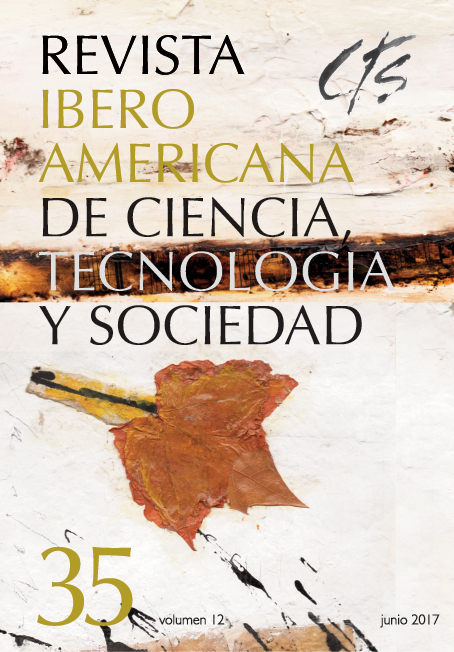Literature As A Means For Learning Science: The Water Cycle
Keywords:
water cycle, education, literature, science, culture of waterAbstract
This paper showcases literature as a cross-cutting tool that may help to enhance and facilitate the learning of science-related concepts and processes. More specifically, its goal is to explain the water cycle through legends, tales and myths that may encourage memorization and motivation among students. We can thus demonstrate that literature may be used to bring science closer to students, reducing the frustration and the negative emotions that are likely to be caused by the complexity and abstraction posed by several scientific concepts. Likewise, we endorse the need to teach a new culture of water that may help us to respect and value our environment across the various areas of the educational curriculum.Downloads
References
ARROJO AGUDO, P. (2006): “El reto ético de la nueva cultura del agua: funciones, valores y derechos en juego”, Revista de la Universidad Bolivariana, vol. 5, nº 14, pp. 1-6.
BALÇA, A. y AZEVEDO, F. (2017): “Os primórdios da relação entre literatura para a infância e ambiente em Portugal”, Revista Textura, vol. 19, nº 39, pp. 19-34.
BULA, G. (2010): “Ecocrítica: algunos apuntes metametodológicos”, Logos, nº 17, pp. 63-76.
CARABALLO, G. B. (2009): “¿Qué es la ecocrítica?”, Logos, nº 15, pp. 63-73.
DEL AGUA, F. N. C. (2005): Declaración Europea por una Nueva Cultura del Agua, Madrid, FNCA.
FLYS JUNQUERA, C., HENRÍQUEZ, J. M. M. y VIGAL, J. B. (2010): Literatura, crítica y justicia medioambiental, Ecocríticas, Madrid, Iberoamericana/Verbuert.
GARCÍA RIVERA, G. (1995): Didáctica de la literatura para la enseñanza primaria y secundaria, Madrid, Akal.
GLOTFELTY, C. (1996): The ecocriticism reader: landmarks in literary ecology, University of Georgia Press.
GUARDIOLA, A. A. (2006): Proceso a la leyenda de las Brontë, Valencia, PUV.
HEFFES, G. (2014): “Introducción. Para una ecocrítica latinoamericana: entre la postulación de un ecocentrismo crítico y la crítica a un antropocentrismo hegemónico”, Revista de Crítica Literaria Latinoamericana, vol. 40, nº 79, pp. 11-34.
HÉRIN, R. (2003): “Consideraciones sobre la valoración social del agua”, Investigaciones Geográficas, nº 31, pp. 5-14.
JAMIESON, D. (1996): The Ecocriticism Reader: Landmarks in Literary Ecology, org. Cheryll y e Harold Fromm, University of Georgia Press.
LANZA, T. y NEGRETE, A. (2007): “From myth to earth education and science communication. Geological Society”, Special Publications, vol. 1, nº 273, pp. 61-66.
MARTOS NÚÑEZ, E. y MARTOS GARCÍA, A. (2012): “Los imaginarios del agua y sus lecturas pansemióticas”, Álabe: Revista de Investigación sobre Lectura y Escritura, nº 6, p. 3.
MARTOS NÚÑEZ, E y MARTOS GARCÍA, A. (2013): “Ecoficciones e imaginarios del agua y su importancia para la memoria cultural y la sostenibilidad”, Alpha (Osorno), nº 36, pp. 71-91.
MAZEL, D. (2001): A century of early ecocriticism, University of Georgia Press.
NEGRETE, A. (2002): “Science via narratives Communicating Science through Literary Forms”, Ludus vitalis, vol. 10, nº 18, pp. 197-204.
REYES-GARCÍA, V. (2007): “Etnoecología: punto de encuentro entre naturaleza y cultura”, Revista ecosistemas, vol. 16, nº 3, pp. 46-55.
ZUGADI, J. L. (2007): “Folklore y educación: hacia una nueva metodología”, Jentilbaratz: cuadernos de folklore, nº 9, pp. 361-374.
Downloads
Published
How to Cite
Issue
Section
License
All CTS's issues and academic articles are under a CC-BY license.
Since 2007, CTS has provided open and free access to all its contents, including the complete archive of its quarterly edition and the different products presented in its electronic platform. This decision is based on the belief that offering free access to published materials helps to build a greater and better exchange of knowledge.
In turn, for the quarterly edition, CTS allows institutional and thematic repositories, as well as personal web pages, to self-archive articles in their post-print or editorial version, immediately after the publication of the final version of each issue and under the condition that a link to the original source will be incorporated into the self-archive.











